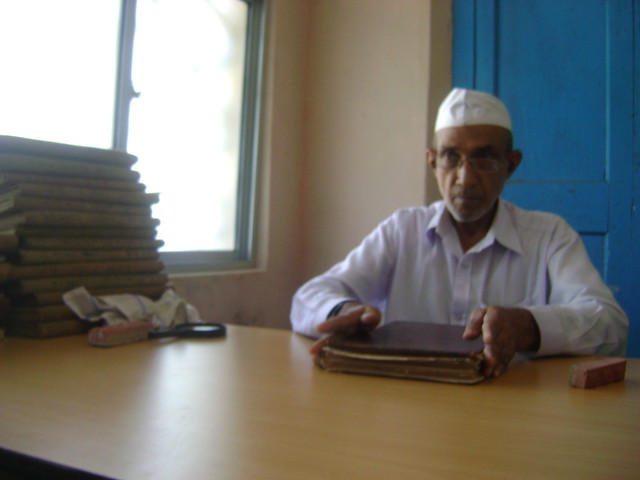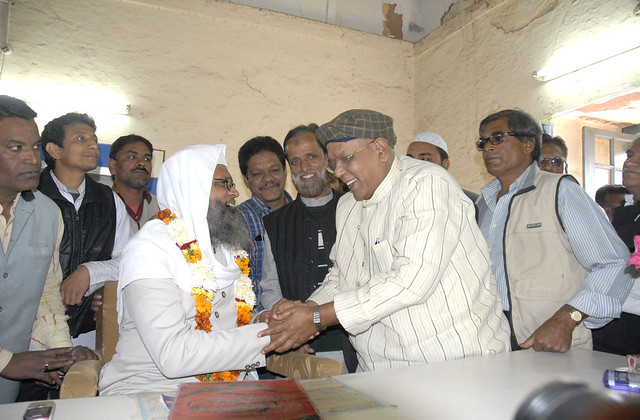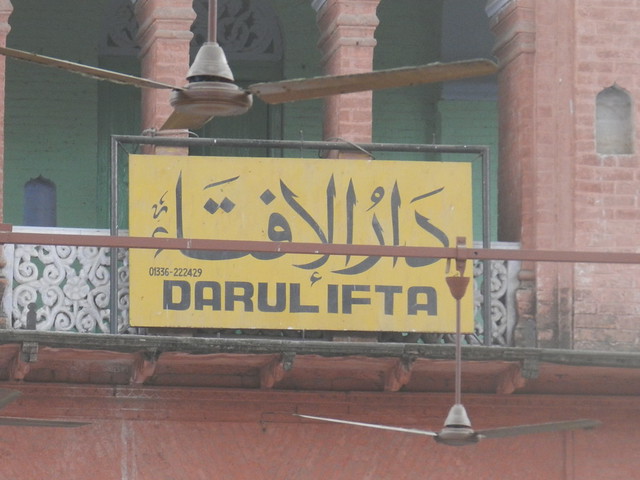By A. Faizur Rahman for TwoCircles.net
The Supreme Court judgment on Darul Qazas deserves to be welcomed for the juridical finesse with which it distinguished between the right of an institution to exist and the legality of its pronouncements. On the one hand, the court ruled that neither the existence of Darul Qazas nor the practice of issuing fatwas could be declared illegal as they were part of an “informal justice delivery system” that seeks to amicably settle disputes between parties. On the other hand, the judges made it clear that as Darul Qazas were not part of the corpus juris of the State fatwas issued by them or for that matter any person or religious body does not amount to adjudication of dispute by an authority under a judicial system sanctioned by law. Therefore, a qazi or mufti has no power to impose his fatwa on anyone by any coercive method, and any attempt to do that would be illegal and actionable.
It would appear from the judgment that the court’s decision to legitimise Darul Qazas and fatwas was based on its acceptance in good faith of the pleadings of the All India Muslim Personal Law Board (AIMPLB) and Darul uloom Deoband that Darul Qazas were akin to arbitration centers, and fatwas non-binding opinions. In his article “Misunderstanding a good judgment” (The Hindu, July 19) Mr. Saif Mahmood sought to prove the same when he claimed that “a fatwa is an opinion on a religious matter” and a Darul Qaza is “a permanent alternative dispute resolution (ADR) mechanism to resolve family disputes of consenting parties.” The categoricalness of these assertions makes it imperative to examine if they can stand the test of theological scrutiny.
Darul Qaza
In the context of law, the word qaza denotes a final decision or a binding decree. This is evident from the Quranic phrase wa qaza Rabbuka alla ta’budu illa iyyahu wabil waalidaini ihsaanan (17:23) which translates as “And your Sustainer has firmly decreed that you obey none but Him, and show utmost kindness to parents.” This makes Darul Qaza is a House of decisions (that is, a court), and qazi, the pronouncer of decisions (a judge). It may be pointed out here that throughout Muslim history Shariah courts adjudicated both civil and criminal cases, and had the powers to pass ex parte orders against parties who fail to appear before them unlike arbitral tribunals which cannot intervene in any litigation without all parties to the dispute signing an arbitration agreement.
Fatwa
The word fatwa too has almost the same meaning as qaza. The Lane’s Arabic Lexicon defines it as “a notification of the decision of the law in, or respecting, a particular case”, or “an answer or a reply stating the decision of the law.” In short, a fatwa is a reply that notifies a legal order. This is elucidated by the following clause in verse 4:176 where God Himself issues a fatwa on a certain aspect of the law of inheritance: Yastaftoonaka, qulillaahu yufteekum fil kalalati – They seek your fatwa (yastaftoonaka), tell them: Allah gives you the fatwa (yufteekum) concerning kalala.
All major translators of the Quran have rendered the word fatwa in this verse as “a decree” or “a ruling” including the renowned Deobandi scholar Ashraf Ali Thanwi whose Urdu commentary Bayaanul Quran describes fatwa as a hukm or command thereby ruling out the possibility of it being an opinion unless of course one treats God’s fatwa as an opinion devoid of authority. This argument is bolstered by another verse (12:41) which establishes a fascinating link between qaza and fatwa. Here, Prophet Yusuf announces the interpretation of his co-prisoners’ dream saying Quzial amrullazi feehi tastaftiyaani (The matter has thus been decreed about which you both inquire). The word tastaftiyaani, which is described as an “inquiry”, is derived from the word “fatwa.” In Arabic the seeker of a fatwa is called mustafti. In other words, this verse tells us that when a fatwa is sought what is given is a qaza, a decree.
Interestingly, the Deoband website agrees that “fatwa means a ruling on a point of Islamic law given by a Mufti” but quickly adds: “fatwas are just advice/guidance (from Islamic Shariah) and constitute no legal binding” (http://darulifta-deoband.org/showuserview.do?function=menu&all&forward=terms). But Riyadh-based Islamic book publishers, Darussalam, resort to no such ambiguity. They have titled the English translation of Shaikh Uthaimeen’s Fatawa Arkanul Islam as “Islamic Verdicts on the Pillars of Islam” (http://www.dar-us-salam.com/inside/173-IslamicVerdicts.pdf).
Islamic courts and fatwas in history
In Muslim history the roles of qazis and muftis (those authorised to issue fatwas) were inter-related. Shariah courts delivered justice in criminal and civil cases on the basis of the legal principles formulated by erudite jurists (fuqaha sing. faqih) which were further expounded and given the shape of implementable laws by qualifiedmuftis. The role of the muftis – who themselves had to be a highly accomplished scholars – was to fit, using ijtihaad (independent reasoning), the law deduced by the fuqaha to any given Muslim society to suit the prevailing social conditions. This was done through the institution of fatwas.
Even in India, when as part of the judicial reform process Governor-General Cornwallis enacted a resolution in 1790 to introduce a new three-tiered court system in Bengal (which was later on extended to other parts of India) he included qazis and muftis as “law officers” to assist the British judges. The highest criminal court of this system Sadr Nizamat Adalat was assisted by the chief qazi of the district and two muftis, and it had to apply Islamic law as per the fatwas of the law officers which were binding on the court. The British judges had to wait till 1817 to overrule these fatwas when a resolution was introduced to repeal their binding character. (Rudolph Peters, Crime and Punishment in Islamic Law, pp. 109-119).
However, it was soon felt that the criminal law in India had to be codified because, as Lord Macaulay put it, “Mahomedans” were governed by the Muslim law and Hindus in Bombay Presidency were governed by the laws of Manu. Pundits and Qazis had to be consulted on points of law and sometimes court decisions based on their rulings were arbitrary. Thus in 1860 the Indian Penal Code came into existence thanks to Lord Macaulay. It superseded all other laws and provided a uniform criminal for all Indians irrespective of their religion or caste. In other words, only after 1817 the decisions of qazis and muftis lost their binding character. Not because they suddenly became opinions but because the British de-legitimised their legal status.
Glaring contradictions
Given these hard facts, one fails to understand on what hermeneutic or historical basis AIMPLB and Deoband insist on their definition of Darul Qaza and fatwa. On the contrary, Islamic seminaries have always given the impression that their pronouncements were de facto orders with divine sanction. Of course, they do not have police powers to enforce their rulings as argued by the AIMPLB. But then police powers are not really required. The threat of divine retribution, excommunication or social boycott invoked by some clerics is more than enough to make even a non-seeker of the fatwa abide by it. A glaring example of this is Deoband’s dogmatic avouchment to the Supreme Court: “the persons who are God fearing and believe that they are answerable to the Almighty and have to face the consequences of their doings/deeds, such are the persons, who submit to the fatwa.” The insinuation here is that Muslims who defy fatwas in effect defy God and therefore, will face the consequences. Does this not amount an oblique attempt to enforce fatwas?
Indeed, the Supreme Court suspects this was how the Imrana fatwa was imposed. Expressing shock at the manner in which “a declaratory decree [emphasis added] for the dissolution of marriage and decree for perpetual injunction [emphasis added] were passed” by Deoband against Imrana the court exclaimed, “A country governed by law cannot fathom it.”
Re-naming some institutions
Nevertheless, it may not be wrong to say that claims about the mediatory role of shariah courts and non-binding nature of fatwas are a reflection and recognition of the changing social realities in India. And this needs to be welcomed. For it marks, in the Indian context, a clear change in Islamic legal semantics where a fatwa is no more a judicial verdict and Darul Qaza is not a court that delivers justice to adversarial litigants but an ADR mechanism to resolve disputes of consenting parties. In which case, the ulama may consider re-naming Darul Qaza as Darul Sulah (Arbitration Center) and Darul Ifta, the department of fatwa, as Darul Ra’y (Department of Opinions). Such a move would be in consonance with the stated positions of AIMPLB and the Darul uloom Deoband as made known to the Supreme Court. It would also bring clarity to the true character of Muslim legal establishments in India and save ulama the trouble of explaining the incongruousness in the names and functions of some existing institutions. Perhaps the AIMPLB is not aware that in Britain bodies of this kind function under the Arbitration Act and are known not as courts but as Shariah Councils.
When all is said and done, a fatwa will be considered an “opinion” only when Muslims who believe in God and the last Prophet are free to hold on to their religious views no matter how “deviant”, and reject misogynist fatwas that justify instant triple talaq, child marriage or gender bias, without their Muslimness being questioned.
—
A shorter version of this article was published in The Hindu under the title New semantics of sharia on July 27, 2014. A.Faizur Rahman is an independent Islamic researcher and secretary general of theIslamic Forum for the Promotion of Moderate Thought. He may reached at [email protected], twitter: @FaizEngineer.




